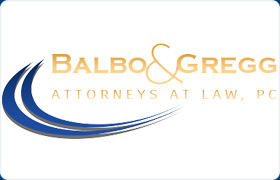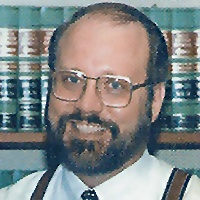 Riceboro DUI-DWI Lawyers, Georgia
Riceboro DUI-DWI Lawyers, Georgia
Sponsored Law Firm
-
 x
x

Click For More Info:
-
Balbo & Gregg
11258 Ford Avenue, STE 11 P.O. Box 1297 Richmond Hill, GA 31324» view mapCriminal Defense Experienced Criminal Defense Lawyer
Whether you are facing potential jail time, expensive fines, or an embarrassing mark on your criminal record, you can turn to our firm for help.
800-810-9681
Sponsored Lawyers
1-10 of 10 matches
Criminal, DUI-DWI, Adoption, Military, Traffic
Born in Ilion, New York, Attorney Chester J. "Chet" Gregg graduated from the State University of New York, College at Oswego in 1993 with a B.S. in Secondary Education. In 1995 Mr. Gregg moved to Boston, Massachusetts and attended law school at the New England School of Law. As a law student Mr. Gregg worked with multiple government organizations including the Massachusetts Attorney General's Office and the Committee for Public Counsel Services (public defender). Mr. Gregg also gained experience in personal injury law through employment at the law firm of Roche, Heifetz, Murphy & Wholley, in Boston, MA, and at the law offices of Kenneth Halpern and Associates in Newton, MA. Mr. Gregg also served as a Case & Note Editor for the New England Law Review. Mr. Gregg graduated from law school in 1998, Magna Cum Laude. After law school Mr. Gregg was employed by a small computer software company, Forefield, Inc., in Worcester, Massachusetts. While at Forefield Mr. Gregg worked as a staff writer, production manager and worked on various corporate legal matters. In 2000 Mr. Gregg moved to San Antonio, Texas where he was employed at Standard Aero, Inc., as a government contracts specialist. Mr. Gregg joined the U.S. Army JAG Corps in 2001 and was stationed with the 3d Infantry Division at Fort Stewart, Georgia. Mr. Gregg initially served as a legal assistance attorney helping soldiers resolve consumer issues such as a landlord tenant law and military administrative issues. He then served as a military prosecutor for the next two years, trying cases involving drug use, assault, firearms, desertion and theft. Mr. Gregg deployed to Kuwait and Iraq with 2d Brigade, 3d Infantry Division, and was the first military JAG to arrive in Baghdad in April 2003. In May 2004 Mr. Gregg was appointed to be a Special Assistant United States Attorney (SAUSA) responsible for prosecuting civilian crimes under Federal Law committed on Fort Stewart and Hunter Army Airfield. In that role Mr. Gregg prosecuted a wide variety of crimes ranging from driving under the influence (DUI) to attempted murder. His most notable case involved the prosecution of a civilian working as a contractor in Iraq under the Military Extraterritorial Jurisdiction Act (MEJA). Mr. Gregg's military awards include the Bronze Star Medal, the Meritorious Service Medal, the Army Commendation Medal, the Army Achievement Medal, the National Defense Service Medal, the Armed Forces Expeditionary Medal, the Global War on Terrorism Service Medal, the Iraq Campaign Medal, the Overseas Service Ribbon, the Army Service Ribbon, and the Combat Action Badge. Mr. Gregg is admitted to the state bars of Massachusetts, Florida, and Georgia. He is also admitted to the Federal District Court for the Southern District of Georgia, the Federal District Court for the Middle District of Florida, the 11th Circuit Court of Appeals, and the United States Supreme Court.
(more)Accident & Injury, Wills & Probate, Bankruptcy, DUI-DWI, Divorce & Family Law
R. Brandon Galloway is a practicing lawyer in the state of Georgia where he currently works at Galloway & Galloway, P.C. He received his bachelors degree from the University of Georgia. Mr.Galloway later received his JD from Houston College formerly known as the South Texas College of Law in 1998. He has a great deal of experience and practices a wide variety of law including Family Law, Personal Injury, Wills & Probate, Bankruptcy, and Criminal Defense. Contact R. Brandon Galloway today to get the legal help you need.
(more)Criminal, DUI-DWI, Accident & Injury, Estate, Power of Attorney
Daryl Walker proudly serves Savannah, Georgia and the neighboring communities in the areas of criminal, DUI-DWI, accident & injury, and estate law.
(more)DUI-DWI, Criminal, Divorce & Family Law, Motor Vehicle, Estate
Jonathan Hunt is a practicing lawyer in the state of Georgia specializing in Personal Injury, Domestic, Criminal, Probate and Real Estate Law.
(more)


 Chester Gregg Richmond Hill, GA
Chester Gregg Richmond Hill, GA AboutBalbo & Gregg
AboutBalbo & Gregg Practice AreasExpertise
Practice AreasExpertise




